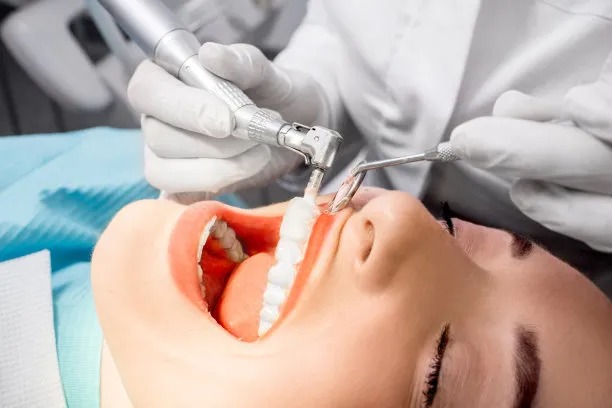Summary: Root canal treatment is a crucial dental procedure aimed at saving infected teeth and preventing complications. However, it requires careful planning and execution to ensure the patients safety and comfort. This article outlines essential precautions to ensure successful root canal treatment while minimizing post-operative complications. By addressing patient selection, sterilization techniques, pain management strategies, and post-operative care, dental professionals can enhance the success rate of the procedure. Furthermore, understanding the importance of each precaution allows for better patient outcomes and satisfaction.
1. Patient Selection and Evaluation

Successful root canal treatment begins with proper patient selection and thorough evaluation. Dentists must assess the patients medical history and current health conditions to identify any factors that may complicate the procedure. Patients with diabetes, heart conditions, or immune system disorders may require special considerations during treatment.
In addition, a careful examination of the tooth requiring treatment is essential. Dentists should utilize imaging technology such as X-rays to evaluate the extent of infection, the condition of the surrounding bone, and any anatomical complexities that may affect the procedure. This comprehensive evaluation lays the groundwork for a successful treatment plan.
Finally, effective communication with the patient about the procedure and what to expect is critical. Educated patients are more likely to adhere to pre- and post-treatment instructions, ultimately leading to a smoother procedure and reduced risks of complications.
2. Sterilization and Infection Control Measures
Infection control is paramount in preventing post-operative complications. The use of personal protective equipment (PPE) by dental professionals—including gloves, masks, and face shields—helps minimize the risk of introducing pathogens during the procedure. Additionally, all instruments used in root canal treatment must be properly sterilized to prevent cross-contamination.
Moreover, the dental environment should be meticulously cleaned and disinfected before the treatment. High-touch surfaces require rigorous attention to ensure that they are free from harmful microorganisms. It is advisable to implement designated sterilization protocols that adhere to established guidelines to ensure a safe space for both staff and patients.
Finally, dentists should also consider pre-treatment antibiotic prophylaxis for patients at higher risk of infection, such as those with certain heart conditions or those undergoing multiple treatments. This precaution can significantly reduce the risk of post-operative infections and ensure a smoother recovery process.
3. Effective Pain Management Strategies
Pain management is an essential aspect of root canal treatment that greatly influences the patients experience. Dental practitioners should utilize local anesthetics to minimize discomfort during the procedure. Offering sedation options may also be beneficial for anxious patients, allowing for a more relaxed and pain-free experience.
Additionally, post-operative pain control should not be overlooked. Dentists can provide patients with a customized pain management plan, including prescription medications if necessary. Education about over-the-counter pain relief options, such as ibuprofen or acetaminophen, can empower patients to manage their pain effectively.
Furthermore, discussing pain expectations with patients pre-treatment can alleviate anxiety and help patients prepare mentally for the recovery process. By acknowledging that some discomfort is normal but manageable, practitioners can enhance patient satisfaction and promote better adherence to post-operative care.
4. Post-Operative Care and Follow-Up
Post-operative care plays a critical role in the success of root canal treatment. Dentists should provide clear instructions on oral hygiene practices, diet modifications, and medication adherence. Encouraging patients to maintain good oral hygiene reduces the risk of reinfection and promotes healing.
Follow-up appointments are also crucial for monitoring the healing process. During these visits, dentists can assess the treatment sites condition, address any concerns, and reinforce after-care instructions. Establishing a follow-up schedule ensures that complications, such as persistent pain or infection, can be tackled promptly.
Lastly, educating patients on recognizing signs of complications, such as fever or increased swelling, allows for timely intervention. This proactive approach fosters a supportive patient-dentist relationship and contributes to satisfactory treatment outcomes.
Summary:
Ensuring successful root canal treatment involves careful patient selection, stringent sterilization protocols, effective pain management, and diligent post-operative care. By focusing on these areas, dental professionals can significantly reduce the risk of complications and enhance patient satisfaction. When implemented correctly, these precautions form a robust foundation for the success of the treatment, ensuring patients return to optimal dental health.
This article is compiled by Vickong Dental and the content is for reference only
Vickong Dental
Vickong Dental is a large medical group established in Hong Kong in 2008 by professors from well-known medical universities in Guangdong and Hong Kong, as well as medical doctors from key national '985' universities (including Master's supervisors and senior professors). The chain of branches brings together expert dentists with PhDs and Master's degrees from Hong Kong and Mainland China, committed to providing high-quality dental treatment.
"Vickong Dental Practices the University Motto of 'Healing and Serving Society,' with a Stable Operation for Sixteen Years. It Has Been honored with Hong Kong Enterprise Leaders's Choice,' and is a Global Trusted Implant Center for the Nobel Implant System. Recommended by Hong Kong Metro Broadcast and Guangdong Television, it Serves Customers from Over Thirty Countries and Regions, Gaining the Trust and Favor of Citizens from the Guangdong-Hong Kong-Macau Greater Bay Area and Surrounding Cities.

Thousands of customers' unanimous praise
The most recognized and highly recommended dental service by customers in the Guangdong-Hong Kong-Macau Greater Bay Area
We Ensure You Receive Detailed Care and Attention Here
Hong Kong standards, Shenzhen prices, Your Trusted English-speaking dentists

Vickong Dental Medical-Grade Instrument Disinfection Process
Vickong Dental Medical-Grade Instrument Disinfection Process

Vickong Dental Chain: A Warm and Comfortable Environment for Treatment






Appointment Hours

Q&A
Why choose Vickong Dental?
Vickong Dental practices the university motto 「Medicine to Benefit Society」, with each branch bringing together highly qualified dentists with doctoral and master’s degrees from Hong Kong and the Mainland, and has maintained seventeen years of steady operation。Recipient of 「2024 Hong Kong Enterprise Leaders Brand」, 「2025 Hong Kong Enterprise Leaders Brand」, a Nobel Biocare Global Trusted Implant Center, and a brand recommended by Metro Radio Hong Kong and Guangdong TV。
To date, we have served customers from more than thirty countries and regions,earning exceptionally high word-of-mouth recognition and trusted recommendations from residents across the Guangdong-Hong Kong-Macao Greater Bay Area and surrounding cities
We have eight major branches in Zhuhai、Shenzhen,and a consultation and service assurance center in Hong Kong,so you can book a free consultation at any time for any questions,which is very reassuring.
If I do not accept the quotation after the CT scan, will I be charged??
No! As long as the actual treatment has not started, you will not be charged any fees.
Will there be any additional charges during the treatment process?
No, there won’t be any additional charges. Before treatment begins, we will clearly explain the treatment plan and its corresponding fees. Only after the patient agrees and signs the consent form will we proceed with the dental service.
Can I pay in Hong Kong dollars?
Yes. Vickong Dental accepts payment in Hong Kong dollars. The amount will be converted based on the exchange rate of the day, and the applicable rate will be clearly communicated to you in advance.
Can I reschedule my appointment at any time?
Yes. Please contact us via **WeChat** or **WhatsApp** as early as possible, providing your original appointment time and details, along with your preferred new date and time slot for rescheduling.













